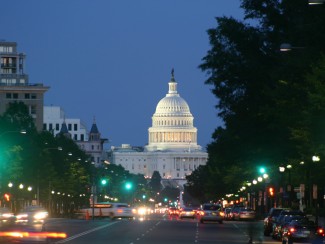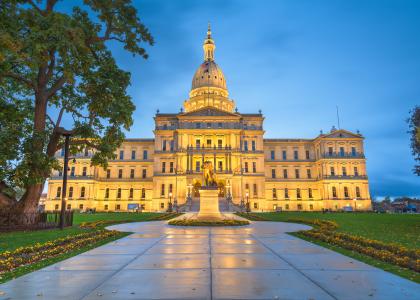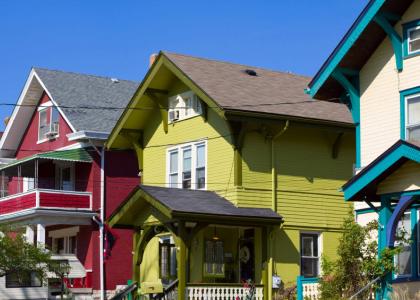Washington, DC—The American Council for an Energy-Efficient Economy released the following statement from Steven Nadel, its executive director, in response to the U.S. House of Representatives passing a major infrastructure bill on November 5 and sending it to President Biden for his signature:
“This bill will invest several billion dollars in measures to save energy, and that’s a major positive step. It increases funding for low-income home weatherization, public transit, small manufacturing plants, and industrial decarbonization demonstrations, among other programs. However, it also includes unbalanced highway funding that perpetuates an unsustainable transportation system.
“To reduce high energy bills and address the climate crisis, Congress needs to do much more. It needs to follow up with transformative investments in the upcoming budget bill.
“We have no time to waste. Today the climate is growing more extreme, and families are facing rising energy prices. The Build Back Better budget bill offers unprecedented opportunities to improve affordable housing, upgrade home heating, transform industry, boost affordable transportation options, and make other timely investments—all of which would reduce people’s expenses and reduce greenhouse gas emissions. Congress needs to step up and pass this bill.”
Background:
ACEEE has previously outlined many of the efficiency investments in the infrastructure bill in more detail, and reviewed its transportation-related measures while calling for stronger measures in the budget bill.
The infrastructure bill includes (among other programs):
- $3.5 billion in new funds for weatherizing homes of low-income households
- More than $1 billion for building energy codes, new revolving loan funds supporting commercial building and home upgrades, public school and federal building upgrades, and worker training
- $39 billion in additional public transportation funds; however, these funds are paired with much larger investments in roads and highways that sustain an energy-intensive transportation system
- $7.5 billion primarily aimed to install more electric vehicle chargers and $2.5 billion for zero-emission and alternative fuel school buses
- $150 million to boost industrial assessment centers that help small manufacturing plants identify possible efficiency improvements, and a new $400 million grant program to help plants implement them
- $500 million for industrial demonstration projects and $50 million for smart manufacturing
The Build Back Better budget reconciliation bill still pending in Congress includes (among other programs):
- $5.89 billion in rebates for homeowners who make whole-home efficiency upgrades, plus $360 million for training contractors, with at least 25% for homes of low- and moderate-income households
- $6.25 billion in rebates for homeowners and multifamily building owners to electrify—such as with heat pumps—with $3.8 billion of this funding dedicated for low- and moderate-income households and tribal communities
- $2 billion (with up to $4 billion in lending authority) for improving the energy and water efficiency—and climate resilience—of multifamily affordable housing
- Updated and expanded tax incentives for efficient new and upgraded homes and commercial buildings—including much-improved incentives for constructing new homes that are zero energy ready and for deep energy retrofits of commercial buildings
- $300 million to support the current model building codes and codes for zero-energy buildings
- $4 billion in grants for states, municipalities, and other entities to invest in transportation infrastructure projects that reduce carbon emissions
- New incentives for the purchase of electric trucks and buses, as well as $5 billion in grants and rebates, including $2 billion specifically for areas where air quality does not meet federal standards
- $10 billion for transit projects supporting access to affordable housing and enhancing mobility for residents in disadvantaged communities
- Major updates and expansion of tax credits for electric vehicles, fuel cell vehicles, vehicle chargers, and new credits for used electric vehicles and electric bicycles
- A first-of-its-kind $4 billion investment toward decarbonizing the industrial sector via cost-sharing funds for deploying advanced industrial process technologies
- Broader funds that could be used for efficiency, including $29 billion in greenhouse gas reduction funds for state and local governments and nonprofits, about $12 billion for rural electric co-ops and other rural grants and loans, $8 billion for energy communities and environment and climate justice block grants, $3.6 billion for loan guarantees, and more than $90 billion for public and assisted housing



